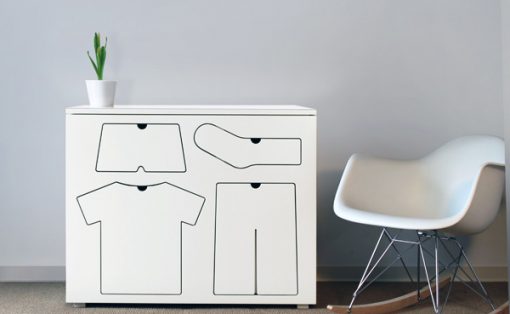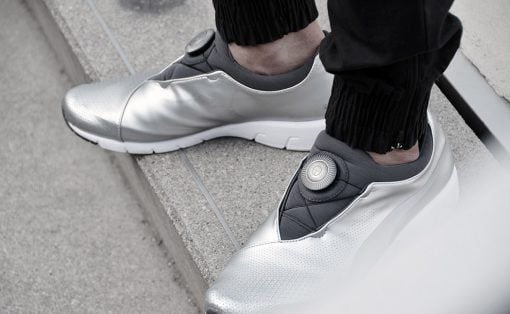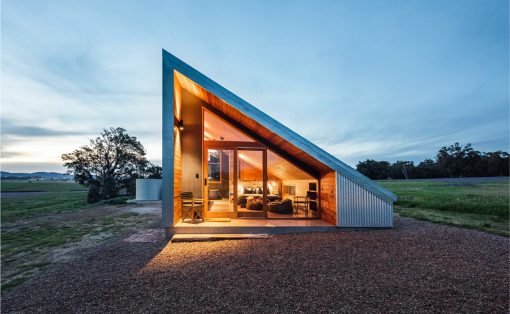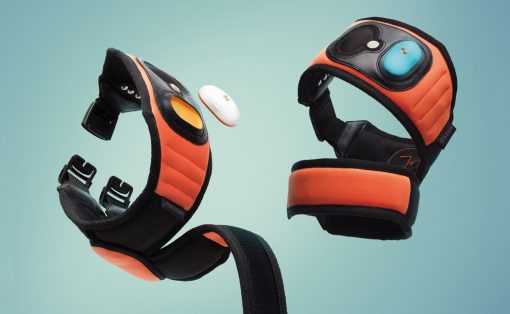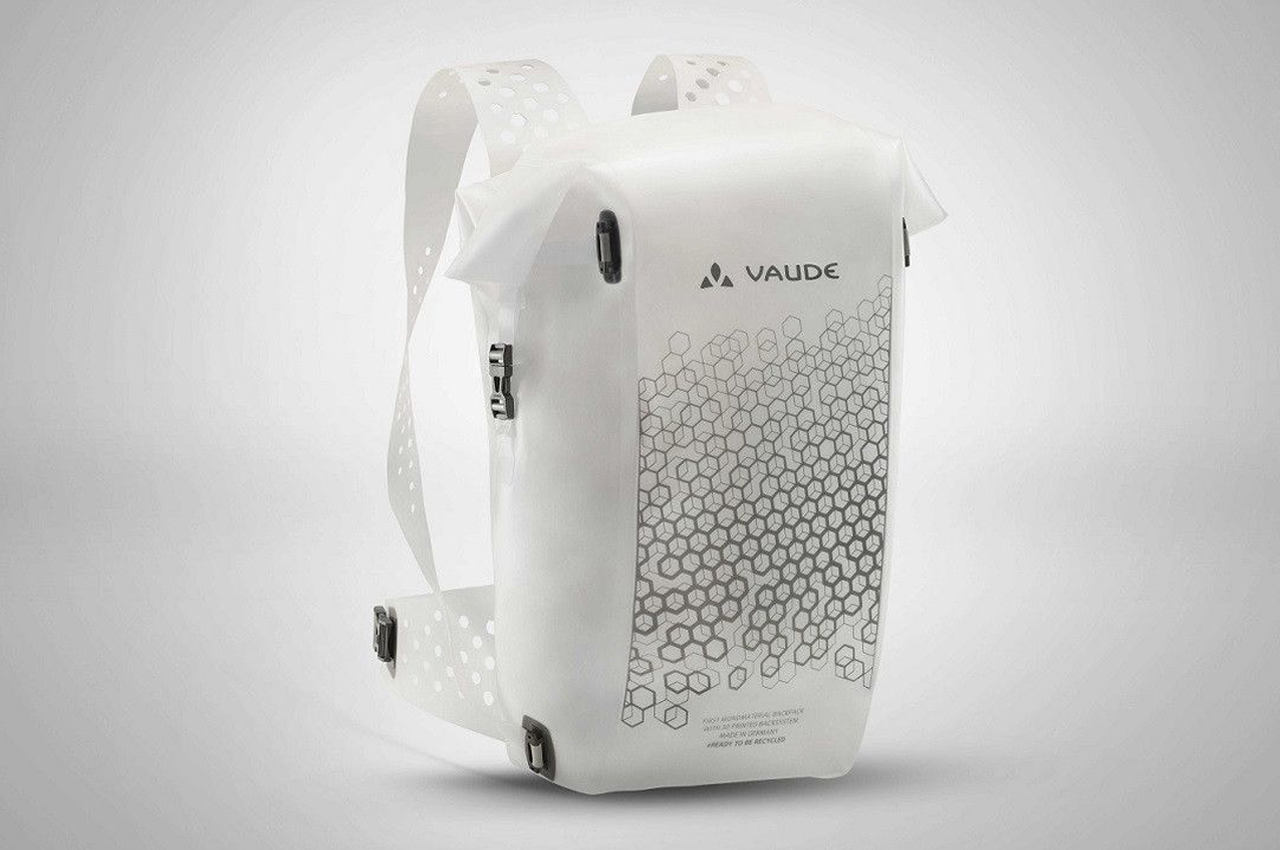
Outdoor mountain sports brand Vaude developed Novum 3D, a 3D-printed backpack that’s made from mono-materials to be recycled and made within a circular design loop.
Vaude is an outdoor mountain sports brand that develops sustainable outdoor gear because they want younger generations to be able to enjoy the outdoors in the same ways we’ve enjoyed it. Supplying the clothing, accessories, and equipment necessary to take on your next hike, camping trip, or forest bath, Vaude is committed to a responsible and sustainable design process from start to finish and back again. Using innovative 3D printed back pads, Vaude’s latest product is a fully recyclable backpack made from mono-materials.
Designer: Vaude
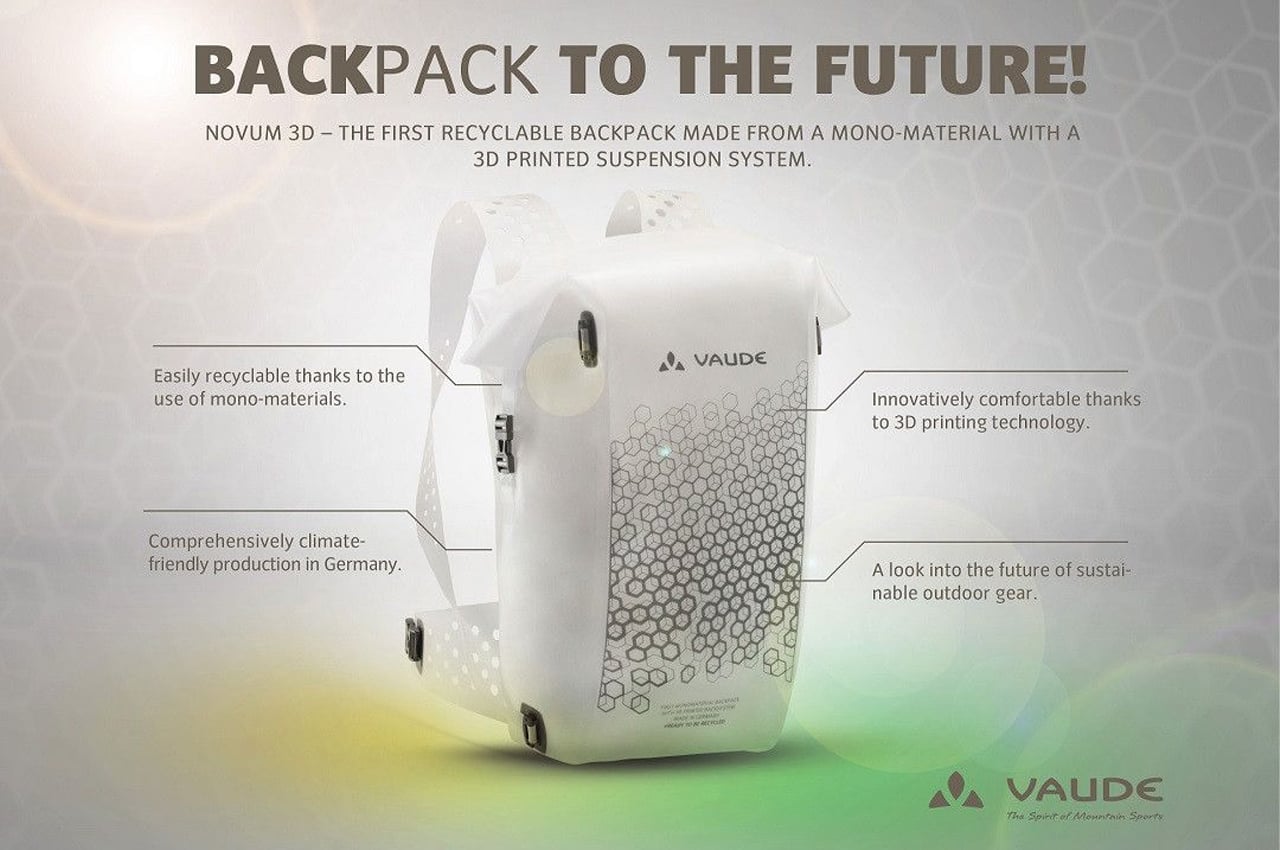
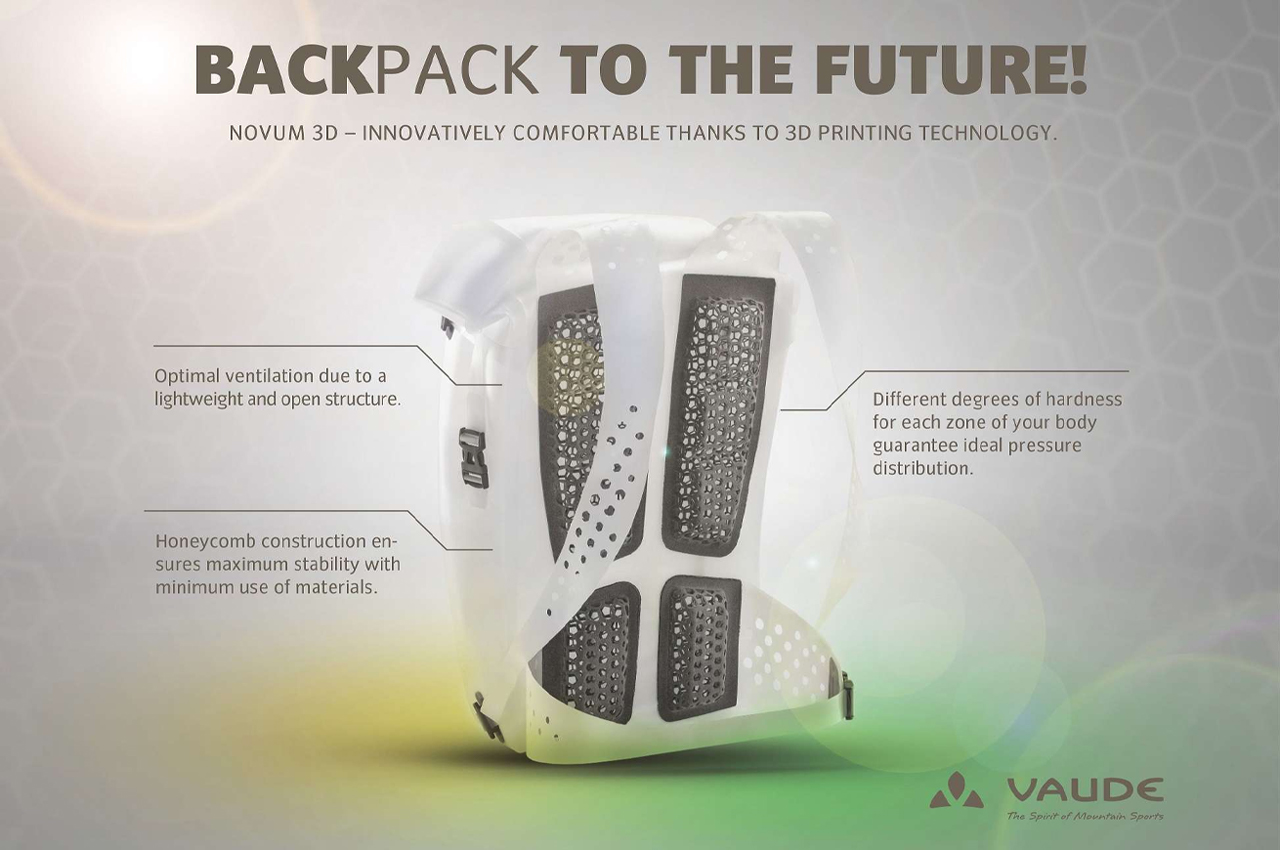
Dubbed Novum 3D, Vaude’s outdoor backpack features a honeycomb construction that ensures maximum stability while keeping the materials needed for production to a minimum. Each component of the backpack, from the straps to packsack and even the honeycomb back pads is 3D printed from 100% thermoplastic material (TPU). Each component of the Novum 3D is also fully removable and recyclable, taking a big step towards a circular economy.
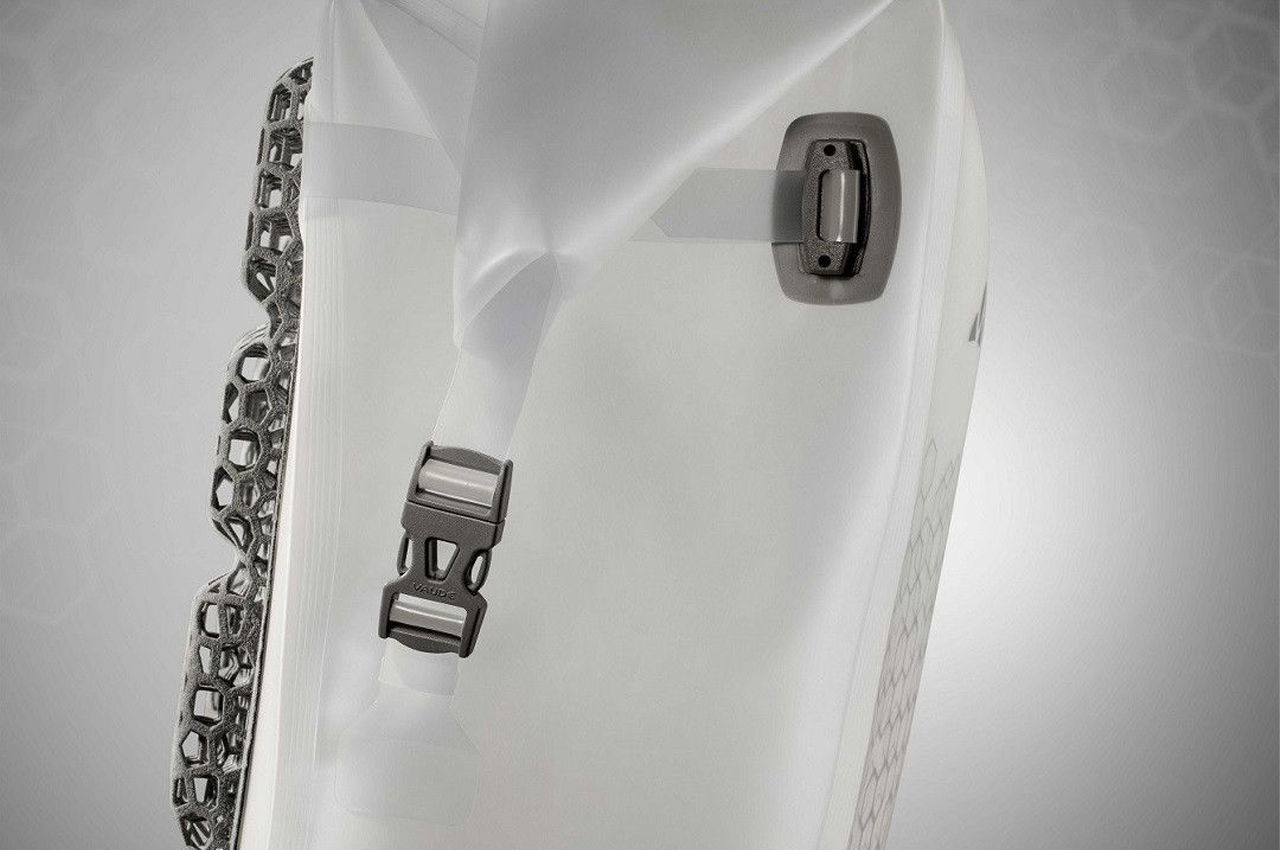
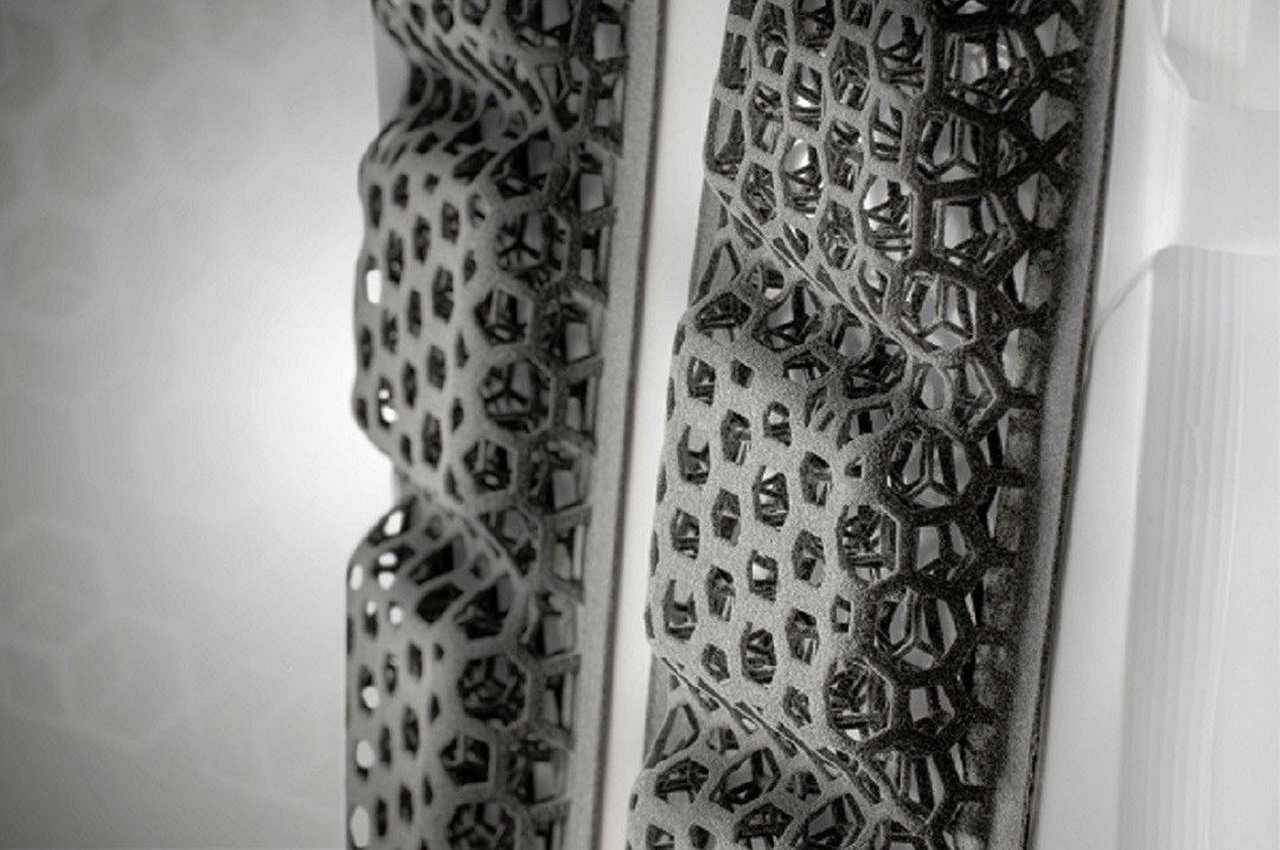
Sustainability remains at the forefront of Vaude’s design principles. As the designers note on their website, “Ideally, a product should be returned completely back to the production process at the end of its life cycle. This is true recycling, but it is still a big challenge for the textile industry at the moment. Many products consist of at least 5 to 10 different materials or mixed fabrics and therefore cannot be separated by type. For this to succeed, the entire product life cycle must be considered and redeveloped.”
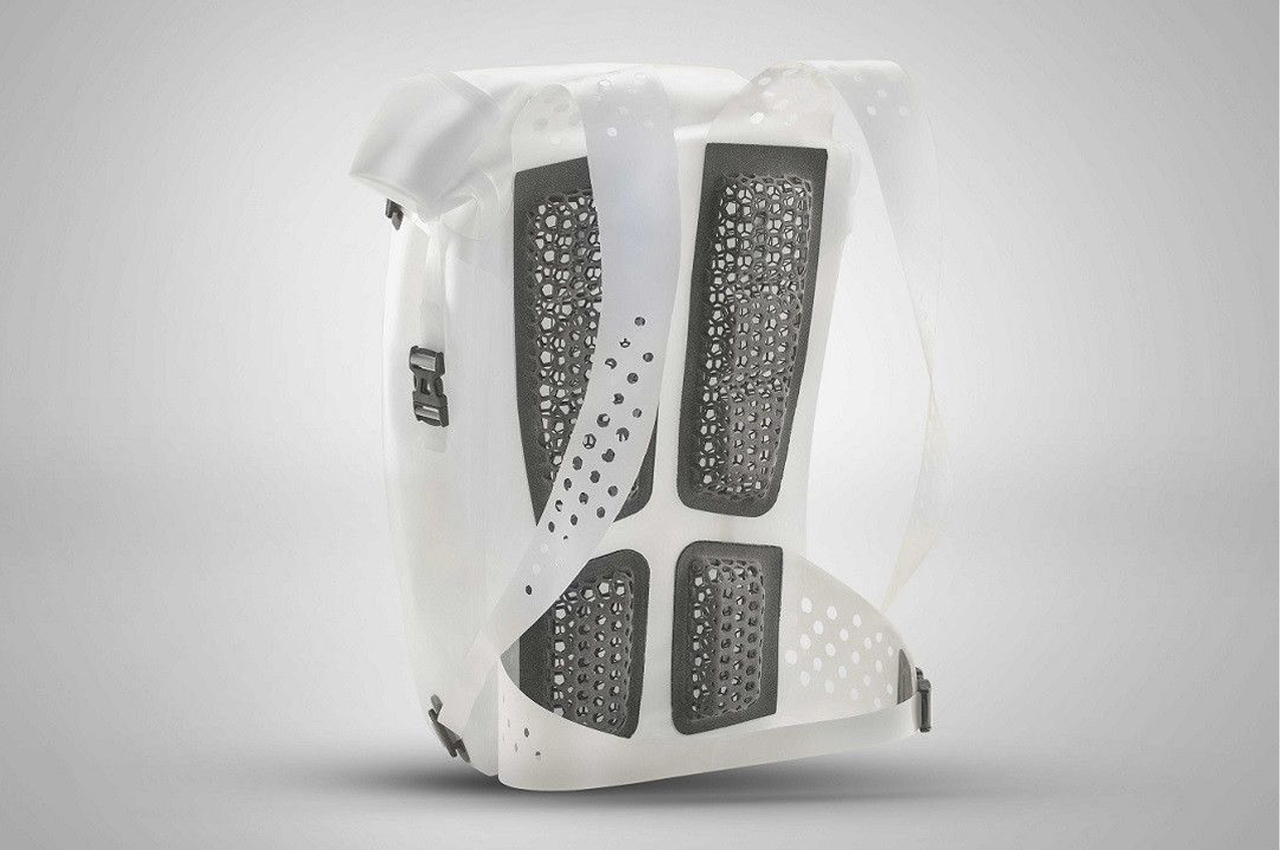
While some might assume that sustainable design isn’t necessarily a comfortable design, Vaude’s integration of 3D printing ensures both. Looking no further than nature to define the backpack’s comfort, Vaude notes, “Innovative 3D printing technology creates an extremely lightweight suspension system. The honeycomb construction is one of the most stable forms in nature. This type of construction offers us the highest stability with the least amount of material. The lightweight, open structure also automatically provides ideal ventilation. At the same time, different degrees of hardness ensures ideal pressure distribution.”



